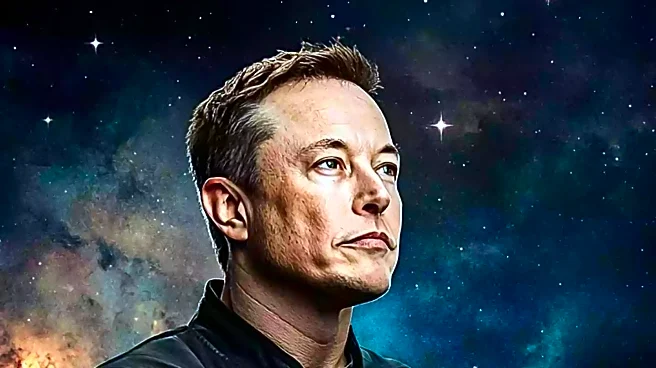What's Happening?
In a posthumous Netflix interview, renowned primatologist Jane Goodall expressed her desire to send President Trump, Elon Musk, Vladimir Putin, Xi Jinping, and Benjamin Netanyahu into space aboard a SpaceX rocket. The interview, part of the show 'Famous Last Words,' was recorded in March with the understanding that it would be released after her death. Goodall, who passed away at 91, humorously suggested that Musk, known for his ambition to colonize Mars, could host the journey. The interview has sparked widespread attention, with clips going viral and generating debate over their authenticity. Goodall's comments were made in response to a question about people she disliked, and she linked the idea to Musk's vision of discovering new planets. The conversation also touched on aggression in chimpanzees, drawing parallels to human behavior, and concluded with Goodall's message of hope and a call to protect the planet.
Why It's Important?
Jane Goodall's remarks highlight her critical view of certain global leaders and their policies, reflecting broader societal concerns about leadership and environmental stewardship. Her comments resonate with ongoing debates about the role of influential figures in addressing global challenges such as climate change and political aggression. By suggesting these leaders be sent to space, Goodall underscores the urgency of reevaluating leadership priorities in the context of planetary preservation. Her interview serves as a reminder of the interconnectedness of human actions and environmental consequences, urging individuals to consider the impact of their daily decisions on future generations. The viral nature of the interview indicates a public appetite for discussions on leadership accountability and environmental ethics.
What's Next?
The posthumous release of Jane Goodall's interview may prompt further discourse on the responsibilities of global leaders in addressing environmental and social issues. It could lead to increased scrutiny of the policies and actions of the figures mentioned, particularly in relation to climate change and international relations. As the interview gains traction, it may inspire public and political figures to engage more deeply with environmental advocacy and leadership reform. Additionally, the conversation around aggression and leadership styles may influence discussions on governance and diplomatic strategies, encouraging a shift towards more collaborative and sustainable approaches.
Beyond the Headlines
Jane Goodall's interview touches on deeper themes of human nature and leadership dynamics, drawing parallels between primate behavior and human society. Her insights into aggression and alliance-building among chimpanzees offer a unique perspective on the qualities that define effective leadership. The interview also raises ethical questions about the role of influential figures in shaping the future of the planet, challenging viewers to consider the moral implications of their actions. Goodall's belief in life beyond death and the enduring impact of one's actions adds a philosophical dimension to the conversation, encouraging reflection on legacy and the long-term consequences of leadership decisions.











